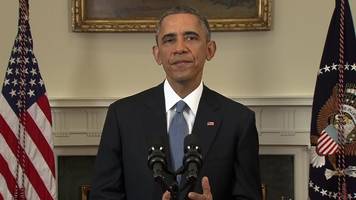President Obama’s post-election promise of a “new dawn of American leadership” began in earnest five months into his first term with an important speech in Cairo June 4, 2009, appropriately titled, “A New Beginning.” He started his oration by remarking “We meet at a time of great tension between the United States and Muslims around the world…. I’ve come here to Cairo to seek a new beginning between the United States and Muslims around the world.”
The packed audience at Cairo University, including many students, was mesmerized by Obama’s rhetoric and the renewal of hope for a better future. They were not told that his “new beginning” was based on the geopolitical intention to continue and tighten U.S. hegemony the Middle East. At the time Washington was supporting authoritarian regimes throughout the region, just as it does today. Further, Obama today is fighting or supporting more wars in the vicinity than when he assumed office.
The wreckage of that “new beginning” is strewn throughout the Middle East in Afghanistan, Iraq, Syria, Libya, Yemen, Somalia, and elsewhere.
President Obama inherited and approved of former President George W. Bush’s stalemated Afghan war, now in its 14th year. He expanded the war in quest of victory but failed. He declared it was over, but 10,000 troops remain. It is probable this losing Bush-Obama venture will continue for many more years. Former Afghan President Hamid Karzai is now telling all who will listen, including the leaders of India, Russia and China, that the U.S. and its NATO allies plan to remain in Afghan military bases and listening posts for many years because of its geopolitical proximity to China, Central Asia, Russia, Iran, Pakistan and India.

